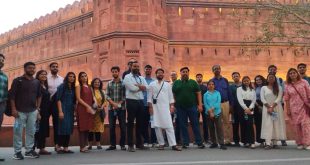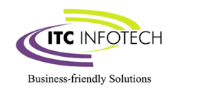· More than 2/3rd of NPOs struggle to access funders for their respective causes
· 61% of non-profits receive less than a quarter of their funding in an unrestricted manner
· 54% of non-profits find meeting funders’ reporting and compliance requirements burdensome
New Delhi, 15th February 2023: India today is the fifth largest economy with a GDP of over $3 trillion. As a country, we have uplifted millions of people from poverty and made significant strides in key socio-economic indicators. However, despite making significant improvements, when it comes to equitably ensuring the welfare of all Indians, much is left to be desired. The government’s ability to provide the risk capital necessary to unleash innovation and reform is curtailed by multiple factors. As per estimates, India can unlock an additional funding corpus of INR 60k- 100k crores if UHNIs start giving in proportion to their global peers. The question then is, how can the Indian state achieve optimal equilibrium? Here is where NPOs and civil society have a critical role to play.
Accelerate India Philanthropy, surveyed 65 Non-Profit Organisations (NPOs) of different sizes working across different sectors to understand their scaling roadmap and the key drivers and barriers that they face in the process. The research shows that 74% of nonprofits consider ‘scaling their impact’ extremely important. Despite this, most nonprofits struggle to survive, let alone grow or scale their impact. As per estimates, there are more than three million nonprofits in India, and more than 2/3rd of them operate at suboptimal levels with an annual budget of less than one crore. Within this, philanthropic grants from HNIs and UHNIs make up less than 20% of total grants for the majority of NPOs. AIP’s report identifies four systemic problems that NPOs in India face in scaling their impact and the role that philanthropists can play in helping them overcome these challenges.
First, more than 2/3rd of NPOs struggle to access funders for their respective causes. The complexity of the giving landscape in India with a number of different causes each requiring attention, results in philanthropists tending to limit their choice of sectors and partner organisations to their immediate life experiences and recommendations from their network. This makes it possible for a particular set of well-connected, large NPOs working in particular sectors to have better access to philanthropic funders. To mitigate this, philanthropists should be open to new ideas and opportunities across different sectors. This increases the likelihood of different kinds of nonprofits, across sizes and sectors, getting access to you, thereby reducing the systemic deprivation of visibility and funding.
Second, the report finds that 61% of nonprofits receive less than a quarter of their funding in an unrestricted manner. Most funding is restricted and channelled towards financing costs associated with individual programmes. As a result, critical functions and shared administrative costs essential to run the organisation, such as building robust fundraising processes, financial systems, capacity building, and training, are left perpetually starved.
Third, there is a mismatch between the expectations of funders and nonprofits. Weak communication and poor feedback loops result in funders having unrealistic expectations about the actual cost of running a nonprofit. In a bid to meet these unrealistic expectations and secure future funding, they misrepresent their costs by lowering them. These further fuels funders’ unrealistic expectations about costs, especially overhead, capacity building, and other non-programme costs. At its worst, this can become a vicious cycle, resulting in a phenomenon termed the slow starvation of nonprofits. Lastly, 54% of nonprofits find meeting funders’ reporting and compliance requirements burdensome. Moreover, such processes are disproportionately focused on inputs and outputs with little focus on outcomes, creating a perverse incentive for nonprofits to prioritise the former. Adhering to overly burdensome processes incurs an opportunity cost, often taking away the focus of organisations from core programmes and other crucial activities, thereby hindering their ability to scale.
Tackling these issues requires building a relationship of equal partnership between funders and nonprofits, beginning from a point of trust and open communication. For instance, the report highlights that 75% of NPOs expect their funders to connect them to other donors, but fewer than half of them actually receive this support. Multi-year unrestricted funding, rationalising burdensome reporting processes focussed on outcomes, and providing meaningful non-financial support, including connections with other funders, are the three fundamental tenets that form the core of a trust-based effective relationship. Fortunately, the narrative towards these goals appears to be shifting, globally and in India.
Aditi Ray, Director, Accelerate Indian Philanthropy, says “Scaling impact is complex and marred with challenges. However, successful initiatives have proved that with the right intent and by leveraging the power of partnerships, change at scale is possible. Indian philanthropy needs to take a leap of faith by betting on innovative and bold individuals and their vision to do the maximum good. AIP has been created to support UHNIs in their philanthropic journey to enable them to Give More, Give Sooner and Give Better. AIP’s report on ‘Getting Non-profits in India Scale Ready’, is a testament to the potential that the nonprofit sector in India has, and we hope that it will spark meaningful conversations about how impact can be achieved at scale. The report charts key scaling pathways for NPOs and recommends principles for philanthropists in supporting the scaling journey of their partner organizations.”
Nonprofits have endured and delivered in the face of the most tragic events the country has witnessed, including the Covid-19 pandemic, by bridging the last-mile gaps in service delivery. It is high time we change the status quo towards a more inclusive and trust-based philanthropic ecosystem.
 Newspatrolling.com News cum Content Syndication Portal Online
Newspatrolling.com News cum Content Syndication Portal Online






